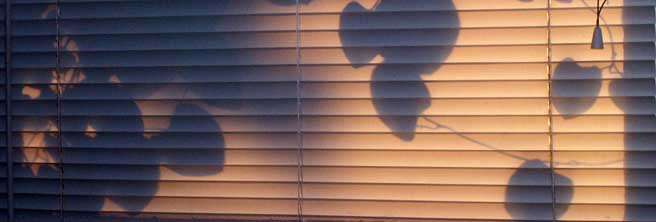"Pieces of the Whole Story" is a blog about the return to wholeness of our self and world, both of which we tend to see as broken, isolated, and wrong. I draw on the world’s spiritual traditions, therapies of psyche, soma, and spirit, poetry, folktales, and the epiphanies of everyday life to bring us into awareness of the whole story.
So, you know you’re stuck, and you have some sense of at least one particular area of that stuckness in which you guess you’ve got more to learn so as to get unstuck? If that’s the case, then how do you learn to listen? How do you learn to listen to the divine discontent I spoke of in the prior post? ...to the symptoms, the ache, the confusion? How do you learn to hear the excluded parts of your story? (This post is directly in response to the first comment I received about the first post “Hunger for the Whole Story.”)
Here are two inner actions that can open up that conversation: (1) Holding the question, and (2) Welcoming the stranger. I’ll just give a brief description of both of these here and then develop each of them in separate posts.
Holding a question begins with a willingness to not know. That may seem simple, but don’t forget all the years when “knowing the answer” meant to be “loved” (acknowledged-approved-recognized) by teachers, who, for most of us, were our second sources of love. To be willing to not know is to allow yourself to be open to the world and ready to receive and be changed by new experience. That’s a position that can feel powerless and vulnerable (but is it?).
Holding a question may sound like something done primarily with the mind, but it’s not. Holding a question is different than just thinking a question. Holding a question (as with all other holding) is done in the heart and the body as well as the mind. You can begin by sensing into your immediate presence and seeing how and where the lack of knowing plus the urge to know shows up. Scan your inner space to sense where you can feel that lack and urge. Give it breath and space. Ask yourself if you are willing to let it be there. That willingness to allow yourself to live with the question – to live with the admission that there is more to know and with the yearning to become aware of that more – that willingness readies a space like preparing your home for a guest to arrive. Not a known guest, but a stranger.
Welcoming the stranger means to extend a friendliness to whatever shows up. That friendliness begins even before you have much of a clue as to what will show up, so the friendliness precedes the showing up. Such an attitude of welcoming is necessary if that which has been hiding from you will be willing to let itself be known. How would you sit in a meadow if you wanted the wild creatures to approach? The “wildness” is that of being rejected, shamed, and disowned. That which most needs to be listened to is that which got excluded when your personality was being formed. I know of no better expression of this friendliness than in Rumi’s poem, “The Guest House."

